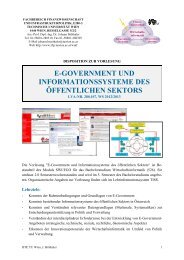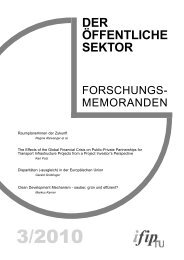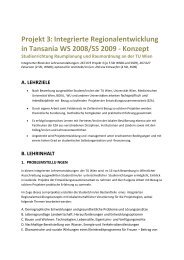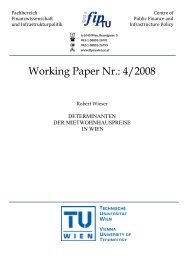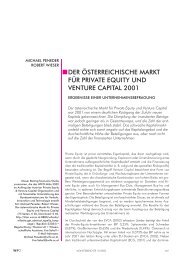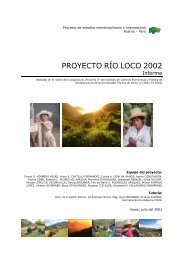Download as a PDF - CiteSeerX
Download as a PDF - CiteSeerX
Download as a PDF - CiteSeerX
Create successful ePaper yourself
Turn your PDF publications into a flip-book with our unique Google optimized e-Paper software.
• Individual rewards accrue from collective organisation.<br />
• There are opportunities for continuing innovation and development.<br />
• Individuals feel in control of the process.<br />
• Sense of common goals and ownership.<br />
• Appropriate and available training.<br />
• Some secure funding streams to sustain co-operative engagement.<br />
• Voluntary participation due to shared opportunities for gain.<br />
• Strong and inspirational leadership.<br />
• Flexibility in response to new opportunities.<br />
• Continuing positive feedback and information flow to participants.<br />
The extent of collective actions h<strong>as</strong> scale and scope limitations, and not all will meet<br />
all these conditions. If collective approaches are to yield more of their potential,<br />
significant innovation is needed in mechanisms to deliver on the problems raised<br />
by these factors; without such innovation, the potential for moving towards more<br />
collaborative environmental initiatives is likely to remain very weak.<br />
CHALLENGES FOR INNOVATION IN SUPPORTING MORE<br />
COLLABORATIVE ACTION<br />
It should be noted that not everything worth doing is worth doing collaboratively.<br />
What is important is to provide mechanisms to move to the appropriate point on<br />
the Individual–Collective spectrum – appropriately defined in relation to the needs of<br />
both farmers and agencies, and the circumstances within which they are operating.<br />
Collective approaches need therefore to be constructed from, and responsive to,<br />
complex combinations of incentives, regulation and social pressures that can effect<br />
these transitions. At present there are many good examples of p<strong>as</strong>t collaborative<br />
initiatives built on project officers’ expertise (Wondolleck and Yaffee, 2000); but to<br />
build on this experience in the UK context, developments are needed in several key<br />
fields:<br />
(1) In monitoring systems that can enable greater clarity in benefits delivery:<br />
• audit systems that send more precise and appropriate signals to managers;<br />
and<br />
• strengthening returns to individual efforts within collective ventures.<br />
(2) In understanding the full benefits of co-ordinated environmental actions:<br />
• provision of evidence on scale and scope benefits from co-implementation;<br />
and<br />
• recognition of the widest possible set of values delivered at the landscape<br />
scale.<br />
(3) In leveraging additional rewards from other sources to reward multi-farm,<br />
multi-objective initiatives:<br />
• circumventing the audit controls constraining government expenditure; and<br />
169






